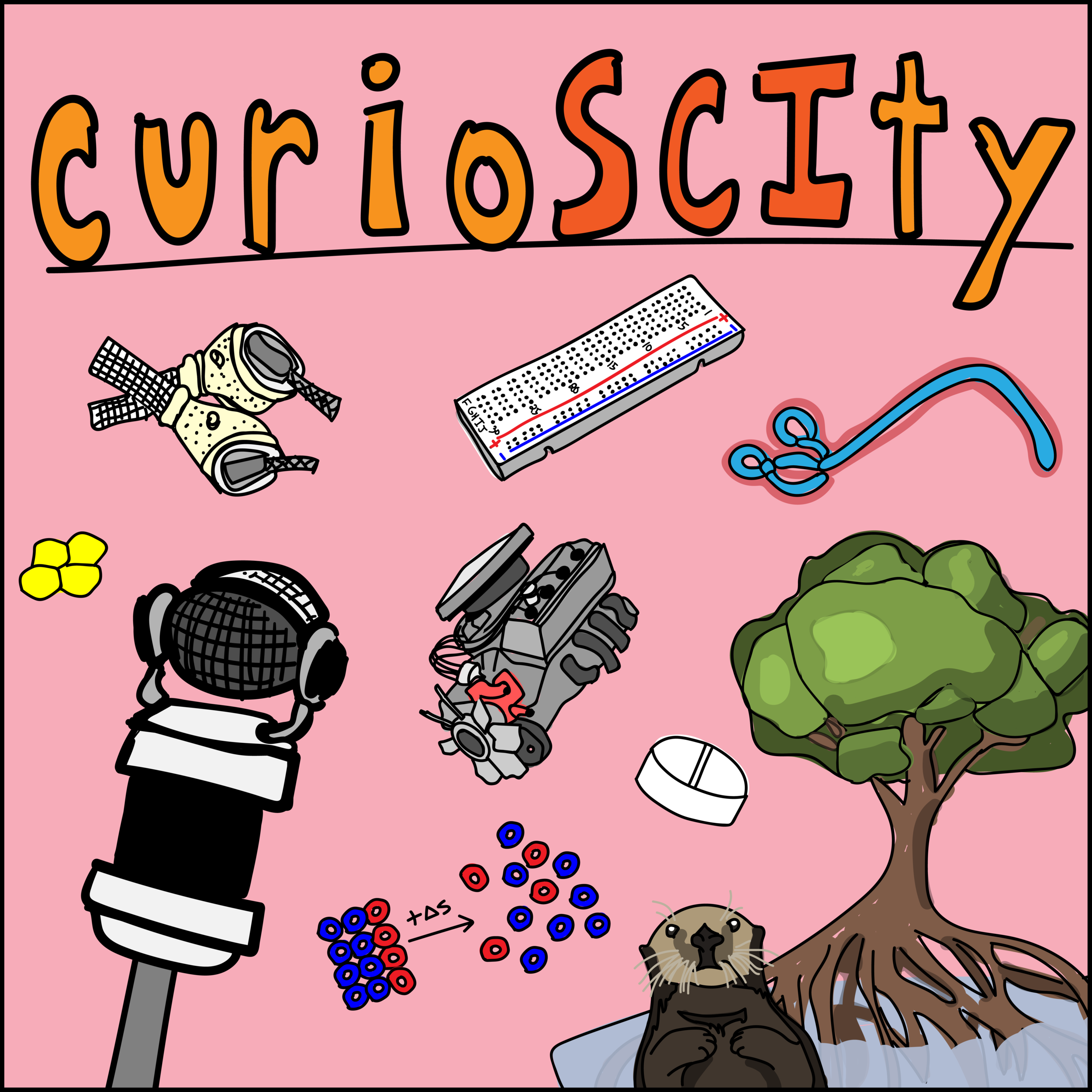7 - Grab Bag I (w/ Susan Russell!)
7. Grab Bag I
Some topics are short and sweet, but do not warrant an entire episode of conversation. There have been many requests for smaller topics to be discussed: thusly, establishment of the grab bag is a proper solution. Today we’ll discuss individuals who think they’re more capable than they are; how one determines what reputable information is; coffee without a filter; and, how to be scientifically conversational.
General Learning Concepts
1) Dunning-Kruger Effect
a. What is the Dunning-Kruger Effect? Tendency of poor performers to overestimate their abilities relative to other people–and, to a lesser extent, for high performers to underestimate their abilities. Really, it’s that those who are “incompetent” think they are much better than they are; not necessarily that they think they’re the best.
b. Examples of the Dunning-Kruger Effect: A poor performing employee ranking themselves very high on a self-evaluation. A confident game show contestant who gets every answer wrong. Self-professed experts in any field assert incorrect knowledge at the dinner table.
c. Why is this? Perhaps it’s because people lack the ability to recognize they’re not doing as well as others (incompetent). Example: If you don’t understand very many words in another language, how can you evaluate the size of your own vocabulary in relation to other people’s? This can be difficult because the ability to make mistakes, not learn, and make additional mistakes is a common occurrence.
d. Critical analysis: We encourage each individual to think critically and to be a good person and to not use anecdotal evidence to point the Dunning-Kruger effect finger at every individual they think meets the criteria. Some people are simply obnoxious without being incapable of recognizing their skills aren’t as grand as they think.
e. Fun fact: The 2001 Ig Nobel Prize for psychology was awarded to David Dunning and Justin Kruger, for their modest report, “Unskilled and Unaware of It: How Difficulties in Recognizing One’s Own Incompetence Lead to Inflated Self-Assessments.” [Published in the Journal of Personality and Social Psychology]. The Ig Nobel Prizes honor achievements that make people LAUGH, and then THINK. The prizes are intended to celebrate the unusual, honor the imaginative — and spur people's interest in science, medicine, and technology. They are given out, generally, by Nobel Prize recipients.
2) How do you find reputable information?
a. What is reputable information? What is misinformation bias? In a word, reputable information is true. However, life is made up of shades of gray and true isn’t always real. Scientists, for example, can show data that are correct and true but make incorrect assertions and connect incorrect dots to make a final deduction that is not correct. You should look for information that: comes from an expert in the field, has been corroborated, has open access data, has been peer reviewed, has its own references, no competing interests from funding sources or otherwise, and is written for the proper audience. [2] [3] [4]
i. Misinformation bias: Social media has made it increasingly simple to be exposed to conspiracy theories, clickbait, hyper-partisan content, pseudoscience, or completely falsified information. People are more likely to spread information by emotional headlines rather than an article’s contents.
b. Where are places to look? Peer reviewed journals. The pros of peer review are clear, as explained in episode 1, but the cons are that these sources are generally not free. Most information is examined online at this point: an average human cannot purchase a .edu or .gov domain. Coms, .orgs, .nets can be purchased by individuals who may have agendas of persuasion. It might be up to you to use your critical thinking abilities to properly vet any source of information that you are hoping to use. Finally, the burden of proof falls on you when you make a statement: to have a solid point in any discussion, you must have the facts to back it up.
3) Cowboy Coffee
a. What is Cowboy Coffee? Cowboy coffee is like French press coffee without the complication of a filter; made by heating coffee grounds in a watered pot and pouring off the coffee without the settled grounds.
b. What is the science behind this technique? Coffee grounds are generally not the favorite part of the coffee beverage. Hot water is much more efficient at extracting important flavor compounds (coffee solubles) of the coffee grounds, but often leaves the coffee insolubles (grounds) in the solution. Cold water is more dense than hot water, so pouring a cup of cold water through the kettle spout will result in the grounds being settled at an appreciably faster rate and potentially also stop the extraction process (or at least the appreciable rate of the extraction process). You can then pour the coffee out without grounds in your cup.
4) How does one be scientifically conversational?
a. Dr. Russell’s outreach: Cultural Conversations, which promotes and fosters themes of local and global diversity. How is local and global diversity important for education and science?
b. Dr. Russell’s Laureate status, 2014-2015: What is dignity? How does that tie in to the other themes that we’ve discussed today?
c. Dr. Russell’s work in regards to women’s issues. What are the next steps that need to be taken to reach equality in academia, research, science?
d. What does it mean to be conversational? Why are themes of conversation so important for education and the world in total?


